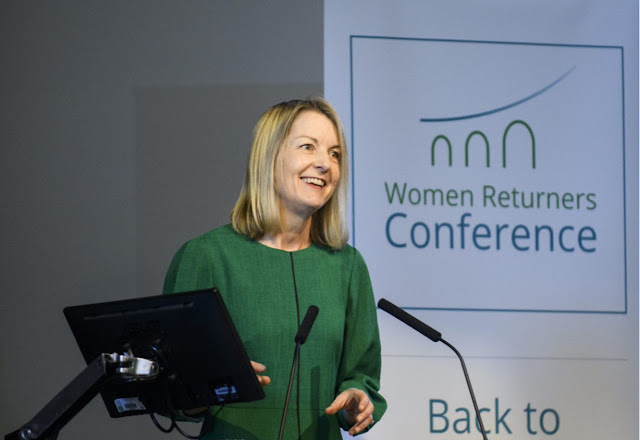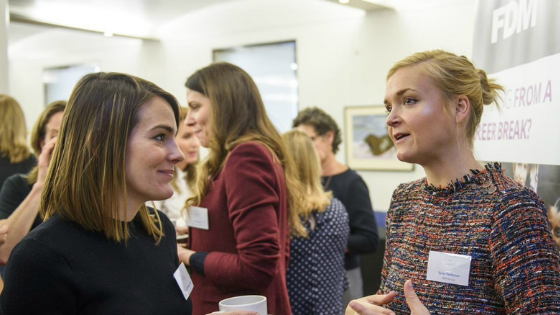‘How do I explain the gap on my CV?’ is one of the most frequent questions we get asked. It’s a good question and one that causes many of our returners considerable angst. But, not anymore...
Victoria McLean, CEO of City CV, ran a fantastic session on this topic at our Women Returners conference last year. And, we’re delighted she’s agreed to come back this year. The session is really interactive and packed with expert tips and insider knowledge of the recruitment market – it’s definitely not to be missed.
As a taste of what’s to come, we asked Victoria to give us her top tips for writing your return to work CV and making the most of LinkedIn. Here’s what she had to say:
Top Tip #1: Never undersell yourself on your CV
I feel a lot of people, women returners in particular, undersell themselves on their CV. It’s not about bragging, but a stand-out CV really needs to demonstrate the benefits you’ll bring to an employer. Your added-value needs to sing out from every line. Most people find that a bit daunting at first, especially after a career break when so many women forget just how great they are. My advice is – don’t panic, we’ll cover loads of ideas in the conference session.
There are several ways to turn a gap on your CV into a positive selling point - make sure to include all the relevant skills and experience you've acquired. I'll talk about this in more depth at the conference. We’ll also be looking at how to hone in on those key strengths and skills. And, how to optimise your CV with key words to get past the Applicant Tracking System (ATS).
Top Tip #2: LinkedIn is a valuable tool
When it comes to LinkedIn, I feel very few people are really making the most of it. That’s a shame because it’s a valuable tool. Around 99% of recruiters use it to search for suitable candidates and to check you out before inviting you to interview.
It’s really worth investing in your LinkedIn profile because it’s not enough to just copy and paste your CV. LinkedIn requires a different approach; it’s less formal and more dynamic than a CV. And, as you’d expect from a search engine run by algorithms, key words play a massive role. Your LinkedIn summary is the most important part of your profile and it should set out your business case with keywords and using all of the 2,000 characters available. It's really important to get the first two or three lines just right so recruiters are motivated to click 'see more'.
Even if you’re completely new to LinkedIn, don’t worry. The conference session will boost your confidence and get you going in the right direction. If you’ve already got a LinkedIn profile but feel you could be doing more with it, we’ve got some ideas for that too.
Thank you, Victoria. We’re looking forward to learning more at your session.
Victoria McLean, CEO of City CV, will be running a conference session on how to write a compelling, impressive CV and Linkedin profile, including how to position your career break. She will also be running a breakout session on Interview Skills.
Where & When?
The 2020 Women Returners London Conference is on:
Monday 12 October 2020: 9.00am to 5.30pm (rescheduled)
Venue: 10 Union Street, London Bridge, London, SE1 1SZ – just a few minutes walk from London Bridge station.
This is our fourth annual London Conference especially for professional woman interested in returning to work after a career break. It’s a highly motivational and inspiring day packed with expert speakers, panels and workshops.
This conference is for everyone looking to return to work after a break. It doesn’t matter what your professional background is or whether your career break has been 18 months or 18 years. Join us for the opportunity to meet informally with other like-minded women and our returner employer sponsors, including Amazon Web Services, Bloomberg, Credit Suisse, FDM Group, J.P. Morgan, O2 and St. James’s Place Academy.
Early Bird offer
Our Early Bird ticket offer is available. Book your ticket now to secure your place.









